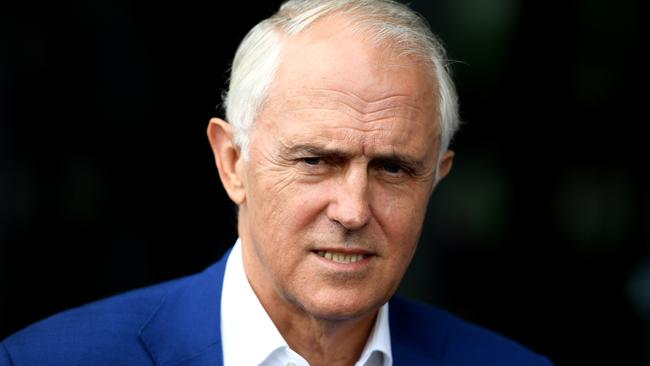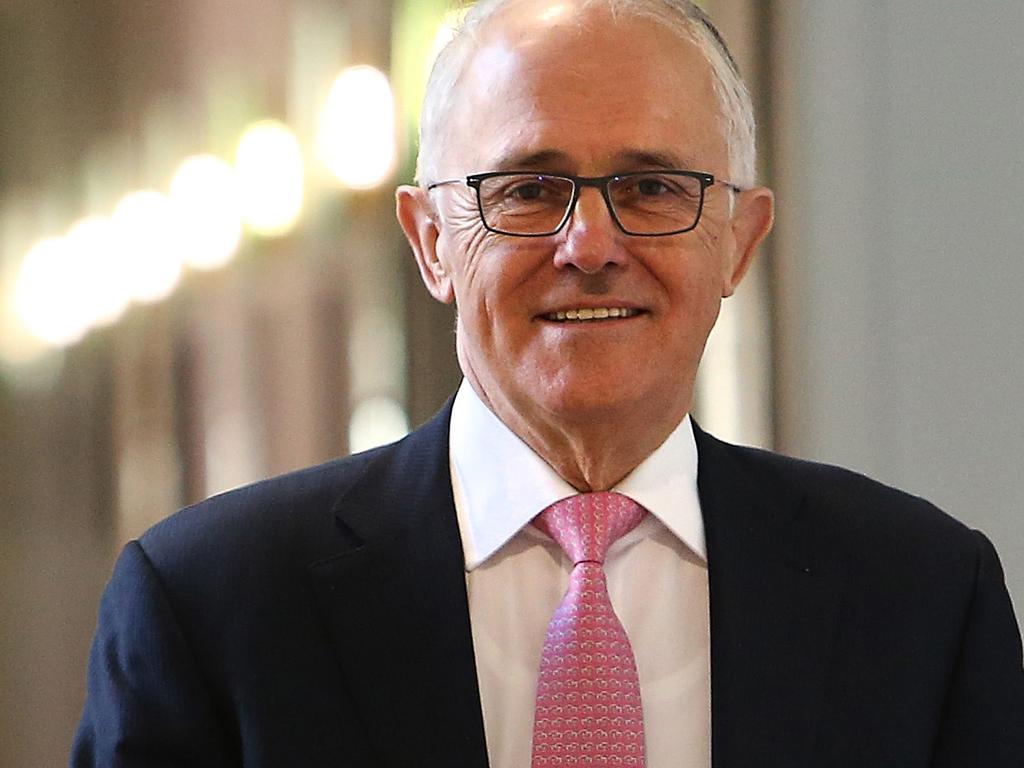Malcolm Turnbull blames Liberal climate change denialists for high power bills
Malcolm Turnbull blasts Libs for failing to develop ‘a coherent national energy policy.’

Malcolm Turnbull has criticised the Liberal Party for failing to address climate change and develop “a coherent national energy policy”, which has led to Australians paying higher power bills and increasing carbon emissions.
“The Liberal Party has just proved itself incapable of dealing with the reduction of greenhouse gas emissions in any sort of systematic way,” Mr Turnbull told The Australian.
“The consequence … is without question that we are paying higher prices for electricity and having higher emissions.”
In his first major interview since the May election, Mr Turnbull, 64, would not be drawn on losing the Liberal leadership — which will be addressed in a forthcoming memoir — but said he would have welcomed his deputy, Julie Bishop, succeeding him as prime minister.
“Yes, I certainly would have welcomed that … she certainly had the capacity to lead the party,” he said. “She is eloquent, she is persuasive, she is incredibly hard-working and I could not have asked for a more loyal or capable deputy.”
Mr Turnbull said the Liberal Party had been influenced by a group that is denialist and reactionary on climate change, and insisted that a true conservative would support reducing carbon emissions.
“Conservatives are practical,” he said. “There is nothing conservative, for example, (in) denying the science of climate change. That’s not a conservative position. That is just, well, that is just denying reality. You might as well deny gravity.
Liberal Party 75th Anniversary: Inquirer: Celebrate the progressive | Inquirer: Abbott, the accidental PM | ‘Turnbull’s ambition was my undoing’ | Angus Taylor rejects Turnbull over power bills | Praise the Libs for progress: Howard | Liberals are dominant — but hardly flawless | The centre-right’s date with destiny
“We (need to) have an effective set of rules to govern our energy market and ensure a low cost and stable transition from burning fossil fuels to renewable energy.
“We are paying higher prices for electricity than we should and we are having (more) emissions than we should, so it is a lose-lose. And if you talk to anybody in industry, the energy sector, they will confirm what I just said to you.”
Australia’s total emissions have increased, year-on-year, for the past five years but the government insists Australia is on track to meet its Paris Agreement commitments.
The biggest regret Mr Turnbull had as prime minister was not settling on a new national energy policy. The Turnbull government- proposed national energy guarantee facilitated a mix of legacy generators and renewable energy sources that met clear reliability and emissions reduction obligations.
Reflecting on the 75th anniversary of the Liberal Party, Mr Turnbull stressed that he led a “progressive and reforming government”, and that principal founder Robert Menzies did not conceive the party as “a conventional conservative party” but rather one that was “genuinely progressive”.
“Menzies was establishing the Liberal Party at a time when people were rejecting both the authoritarianism of the left and the right, both communism and fascism, and the conventional laissez faire capitalism that people did not think served them well during the years leading up to the war,” he said.
Mr Turnbull argued that the term “conservative” had lost its true meaning and now more accurately described a reactionary and populist brand of conservatism that was prevalent abroad.
“I am conservative but the difficulty is that the term has been completely debauched,” he said.
“Most of the people who claim to be conservatives nowadays would be better off described as reactionaries or populists.
“I mean conservatives respect tradition (and) build upon existing tradition as they embrace change.
“A lot of the people that talk about conservatism would not know the difference between Edmund Burke and Tony Burke. So it is a term that is thrown around a lot.
“Donald Trump, for example, is not a conservative. Whatever he is, he is not a conservative.
“The space that people have often identified with a conservative approach is increasingly being occupied by populists who are, whether you describe them as reactionaries or authoritarian populists I’m not sure, but there is certainly nothing conservative about it.”





To join the conversation, please log in. Don't have an account? Register
Join the conversation, you are commenting as Logout